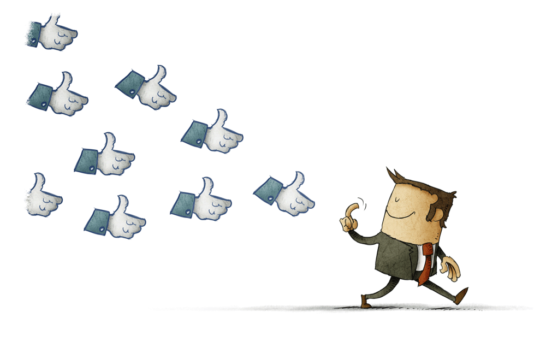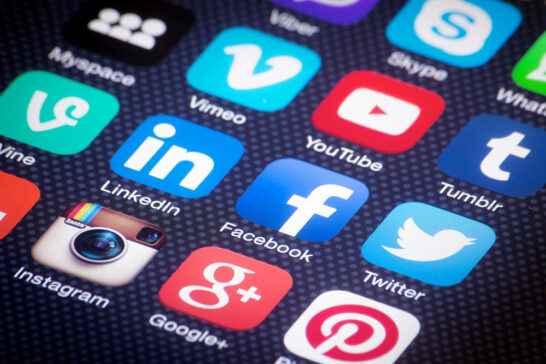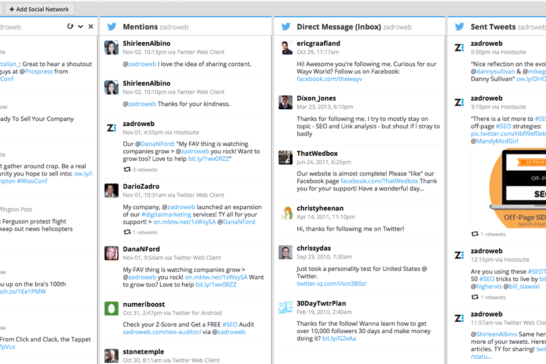
As social media platforms have gained more and more popularity over the last decade or so, the debate has raged on and off as to the effect social signals might have on Google's page rankings.
Some SEO experts claimed that Facebook 'likes' and Twitter 'shares' could help to boost a website's position in the SERPs, while other digital marketers swear that these social signals had little or no impact on a website's organic search performance.
Google, not surprisingly, remained fairly tight-lipped about the whole issue. They seemed content to let the SEO community battle it out amongst themselves, only making a handful of ambiguous comments about the intrinsic value of social media for websites trying to gain traction in a crowded online marketplace.
That is, up until recently. Earlier this year, Matt Cutts finally gave a straightforward answer to the question “Are social signals one of Google's ranking factors?"
That answer from Cutts, in case you hadn't guessed, was “no”. Keep reading...
Let's Back Up A Bit
Google is not entirely innocent when it comes to the ongoing confusion over social signals as ranking factors.
As recently as 2010, Matt Cutts released a video indicating that Twitter and Facebook pages would be a factor in assigning value and page rank to a website.
In 2011, with the launch of Google+ and Google Authorship, the connection between social signals and page ranking seemed even more apparent, Google confirmed in an email to Wired Magazine:
“Google will study the clicks on +1 buttons as a signal that influences the ranking and appearance of websites in search results. The purpose of any ranking signal is to improve overall search quality. For +1’s and other social ranking signals, as with any new ranking signal, we’ll be starting carefully and learning how those signals are related to quality.”
But by 2012, Google had done an about-face. While fielding questions at SES San Francisco, Matt Cutts had this to say:
“We continue to experiment. I wouldn’t put a lot of weight on +1’s quite yet.”
One would assume that holds doubly true for social signals from other platforms, like Twitter and Facebook, which Google has no proprietary interest in.
Flash Forward
Finally, in January of this year, Matt Cutts released a statement making it clear that social signals would not be a part of Google's page ranking algorithm. At least, not for the foreseeable future. He said, in part:
“Facebook and Twitter pages are treated like any other pages in our web index so if something occurs on Twitter or occurs on Facebook and we’re able to crawl it, then we can return that in our search results. But as far as doing special specific work to sort of say “you have this many followers on Twitter or this many likes on Facebook”, to the best of my knowledge we don’t currently have any signals like that in our web search ranking algorithms.”
There are a number of very good reasons for this decision. First and foremost, Google can’t always crawl and index a social media profile.
Second, all likes and shares are not created equal, and it is impossible for Google to assign authority or value to a given 'like' or '+1'.
Third, and this is a biggie, social signals can’t be undone, as mentioned by Brian Dean in a round-up from Brent Carnduff. When you link to a site, you always have the option of removing that link if it becomes a site you don't want to be associated with. Generally speaking, when you 'like' something on a social media site, that vote of confidence is permanent, even if you change your mind.
So, Is Social Media Still Relevant to SEO?
The short answer is, “Yes”. The longer answer is, “Hell Yes.” While your Twitter follows and Facebook likes do not factor in Google's page ranking, they do have a direct correlation to the number of visitors your parent website receives.
Your social media presence is still a powerful tool that can be used to increase awareness of your brand and drive traffic to your website.
Social media shares, while not necessarily having a causal relationship to page ranking, still help to boost the online visibility of your content and can lead to the types of quality links that Google does factor into their page ranking algorithms.
The debate over social signals and page ranking seems to have come to an end, at least for the time being. No doubt the future will bring further changes, as Google finds new ways to incorporate social media data into its page ranking algorithms.
For the moment, your Facebook likes and Twitter follows have little or no impact on your page ranking. However, do keep in mind that a share-worthy page will naturally rise in rankings. This just makes sense from a user experience point of view.
That being said, your social media presence can still be a force of good and can be used to build brand identification and drive traffic to your website. And those are two powerful signals that Google does factor into their page ranking algorithms.



